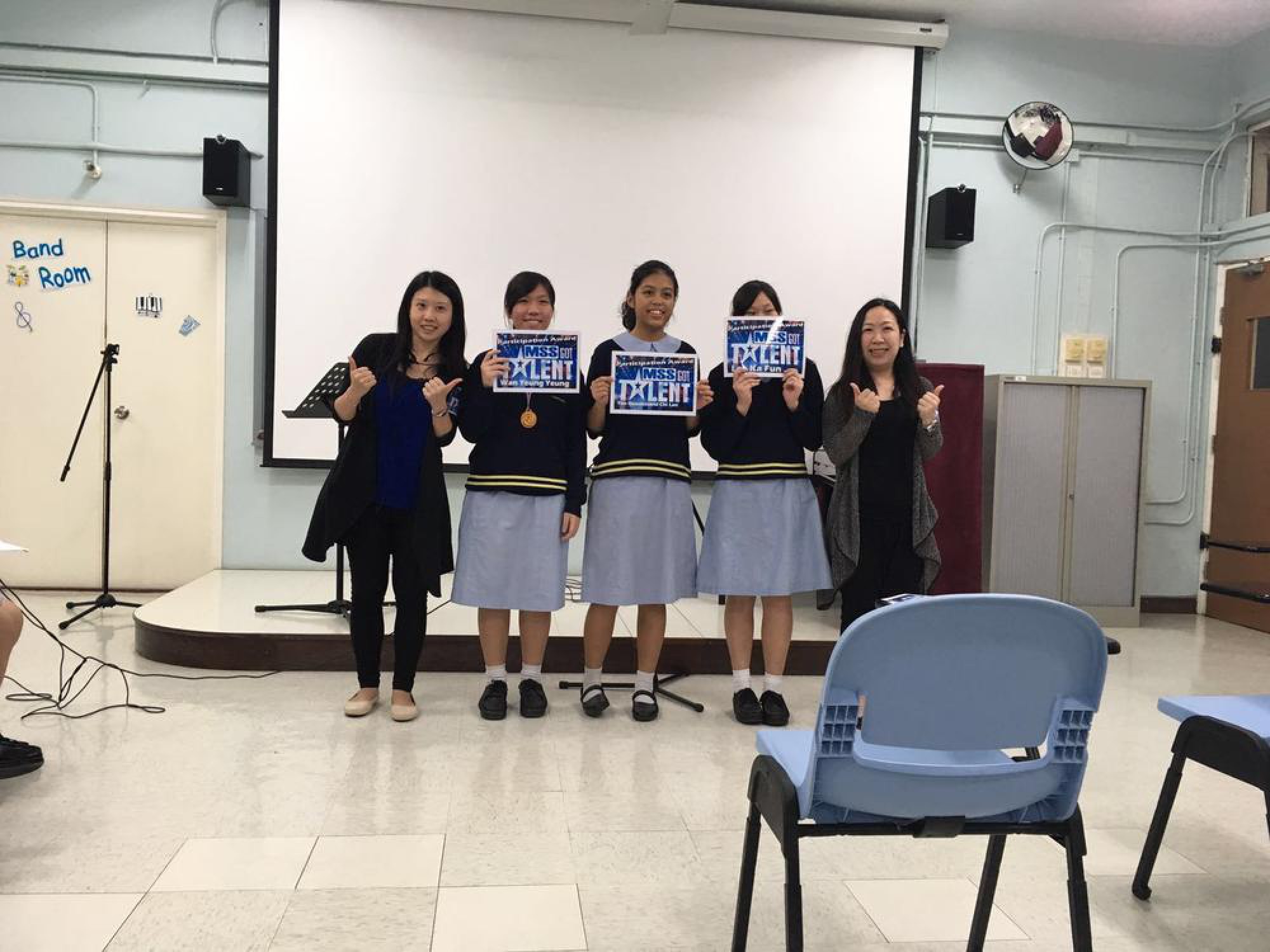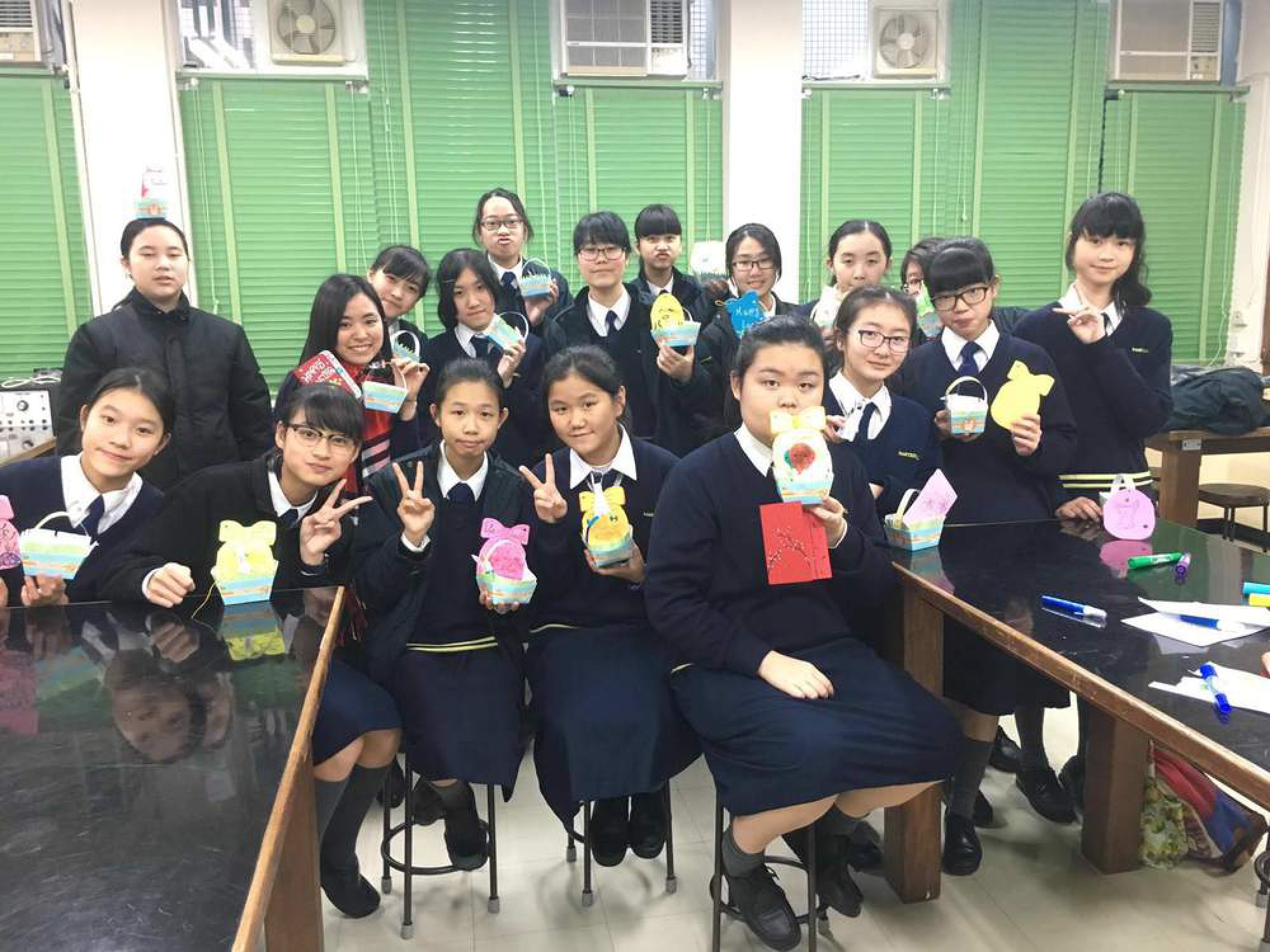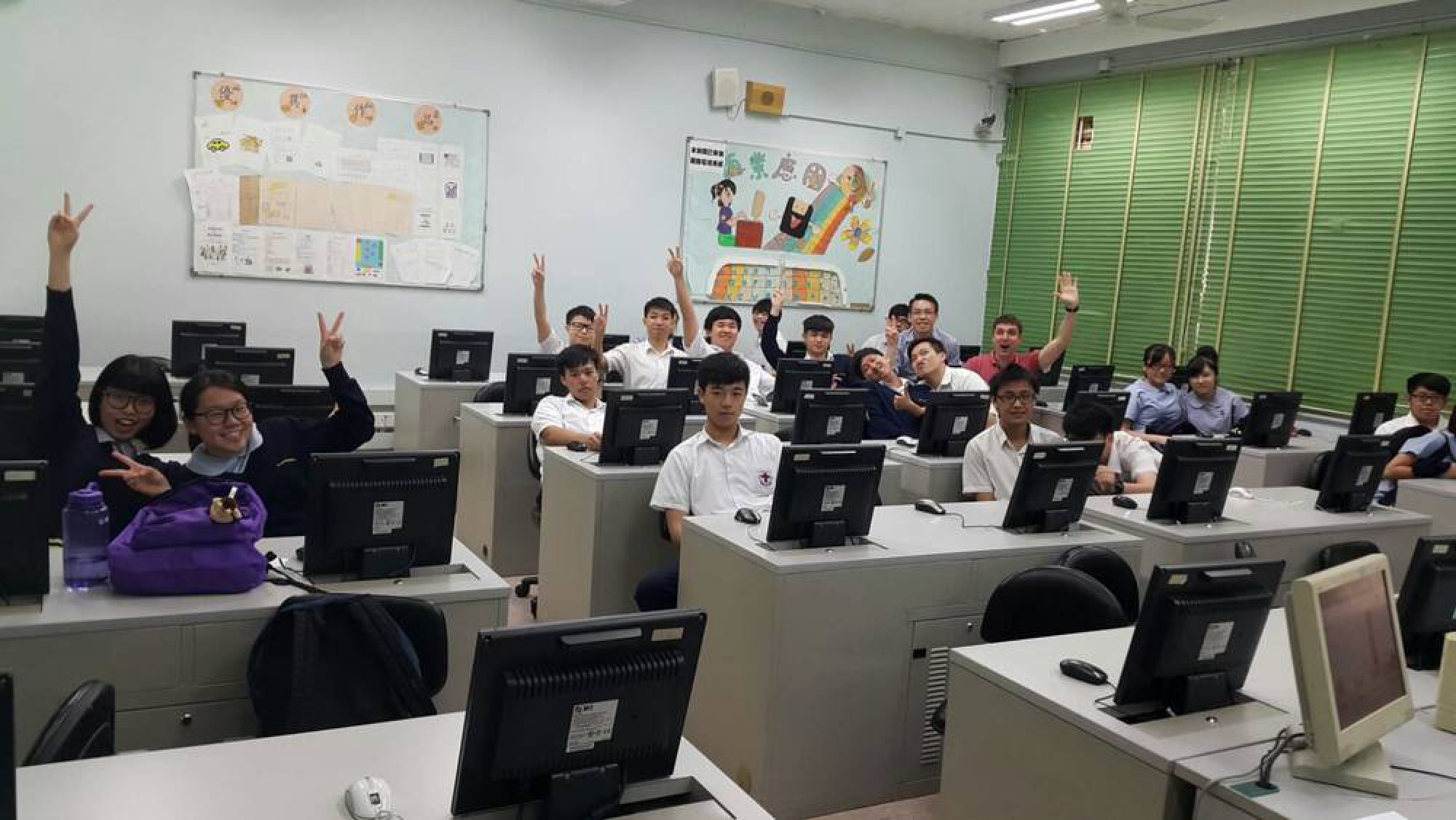
English Subject
Subject Teachers
- Ms. Cheung Yuen Yee Tracy (T-01)
- Ms. Lai Man Wai (T-05)
- Ms. Kan Suk Man Amy (T-09)
- Ms. Ho Wing Sze Winnie (T-14)
- Ms. Wong Ching Lun Helen (T-20)
- Mr. Fan Ka Kit (T-21)
- Ms. Wong Wing Ka (T-42)
- Ms. Yan Tsoi Lam (T-44)
- Ms. Chu Ka Ka Shannon (T-45)
- Ms. Lo Ma Hung Gloria (T-50)
- Mr. Ryan Hynet (T-53)
- Ms. Chan Ying Shuen (T-57)
- Ms. Ho Wing Yan (T-62)
- Ms. Lai Hiu Kiu (T-84)
Our aims
- To arouse students’ interest in learning English through various meaningful language activities.
- To strengthen students’ confidence and competence in using English.
- To help students build up a reading habit of reading English materials.
- To provide students a firm basis in the four skills of English, namely reading, writing, speaking and listening.
- To help students realize that English is an important tool for study, work, communication as well as entertainment.
- To prepare students for the New Senior Secondary Curriculum (NSS).
Our objectives
The main objectives of our panel this year are listed below:
- The Major Concerns of the Year will be integrated into our curriculum:
- Promote Life Education, Cultivate Caring Culture (1st Concern of the Year);
- Foster Self-directed Learning, Strive for Academic Improvement (2nd Concern of the Year);
- Train students to perform well in both internal and external exams (TSA and DSE) and attain a higher passing rate when compared with the results in the previous year.
- Project Learning is encouraged:
- English Project Learning (F.1-5)
- Cross-curricular Project Learning (F.3): The English Panel continues to collaborate with Visual Art panel.
- Cross-curricular learning with Visual Art panel will be launched.
- IT learning is encouraged.
- Cultivate a reading habit among students.
- Language Art courses run by our NET are provided for junior forms to increase students’ abilities and interests in English.
- Members are encouraged to attend different seminars.
- Purchases reference books and materials for junior forms and NSS teaching, as well as promoting reading.
Objectives
Through the new curriculum, learners will be equipped with learning experiences to increase their English language proficiency for study, work, leisure and personal enrichment. They will develop their knowledge skills, values and attitudes in the English medium so as to enhance their personal and intellectual development, cultural understanding and global competitiveness. Students are also prepared to face the changing socio-economic demands resulting from advances in information technology.
Structure of the Curriculum
A. Core Part
Through various authentic and purposeful tasks, students will continue with the task-based approach learning mode at junior forms to gradually gain further enhancement in learning the four language skills, grammar, communicative functions, vocabulary items and text types. It takes up about 75% of lesson time.
B. Elective Part
It includes a range of extension modules which reinforce different aspects of English language learning. The proposed modules are categorized into Language Arts and Non-language Arts. Each school will teach at least 3 modules out of 8 options. The three modules to be taken by the school are Short Stories, Popular Culture and Social Issues. It takes up about 25% of lesson time. Our school has chosen three electives in the NSS curriculum next year, they would possibly be: Popular Culture (Language Art), Social Issues (Non-language Art) and Workplace Communication (Non-language Art)
Assessment Method
| Assessment |
|
Marks | Time | |
| Public Assessment | Paper 1 | Reading | 20% | 1.5 hrs |
| Paper 2 | Writing | 25% | 2 hrs | |
|
|
Paper 3 | Listening | 30% | 2 hrs |
|
|
Paper 4 | Oral | 10% | 22 mins. |
| School–based Assessment (SBA) | Two assessments based on the texts and elective parts chosen by students | 15% | 3 mins. for each assessment task | |
Learning Methodologies
The teaching and learning of language art and non-language art modules have already been integrated into the junior form curriculum, which forms a solid basis for their learning in these areas in the senior forms. Interactive learning mode and task-based teaching are also adopted to fully equip students with the ability and confidence to express in English. Project learning is also introduced to cultivate students’ interests in learning this language. Various language activities and chances for speaking English in public are also provided outside classrooms.
Requirements for learning
Students are interested in learning English and use it widely both in lessons and outside schools. A self-learning habit aims at increasing their English standard should also be developed and students are required to have basic IT skills in the learning process.
Future/ Prospect of Students Learning English
In an international metropolis like Hong Kong, a good command of English will definitely benefit students greatly in aspects like academic pursuit, career achievement, inter-personal communication as well as personal self-enrichment.
Event Photos





Useful Links
- British English VS American English
- BBC Learning English
- Learning: English Campus
- Apple – Movie Trailers
- Non stop English
- Exercises: ManyTings.org
- Grammar Blast
- Grammar: Funbrain.com Grammar Gorillas
- Grammar Practice Park
- Speaking: Oral English activities
- Vocabulary Pinball
- Writing: Power Proofreading
